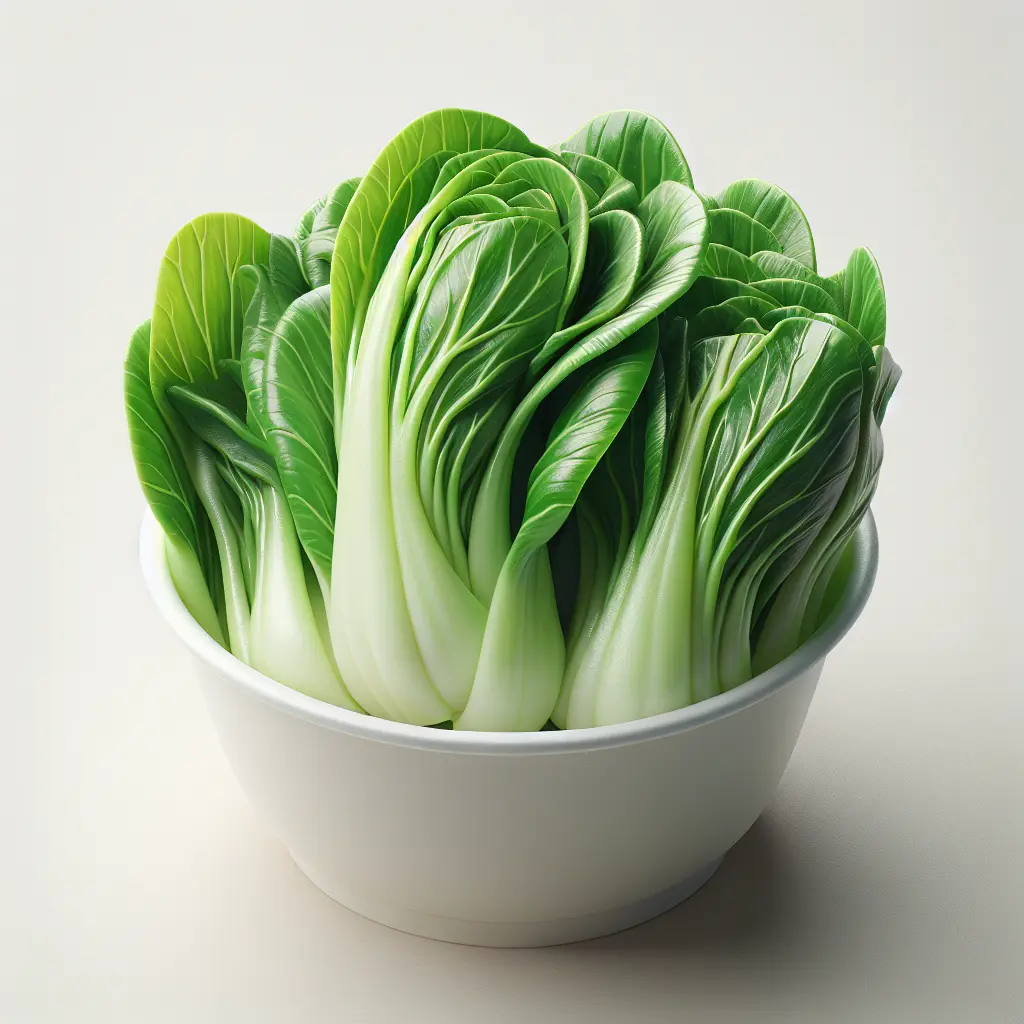Bok Choy: A Nutritional Powerhouse
Bok choy, also known as Chinese cabbage, is a cruciferous vegetable that has gained prominence in global cuisines due to its exceptional nutritional value and culinary versatility. This leafy green vegetable, native to China, is a rich source of vitamins, minerals, and antioxidants, making it a true superfood.
Nutritional Profile
Bok choy boasts an impressive nutritional profile, packed with essential nutrients for optimal health. One cup of shredded bok choy provides:
- Calories: 20
- Protein: 2.7 grams
- Fat: 0.3 grams
- Carbohydrates: 3 grams
- Fiber: 1.7 grams
- Sugar: 1.4 grams
In addition to these macronutrients, bok choy is a rich source of vitamins and minerals, including:
- Vitamin K: Essential for blood clotting and bone health
- Vitamin C: A potent antioxidant that supports immune function
- Vitamin A: Vital for vision and skin health
- Calcium: Crucial for strong bones and teeth
- Iron: Necessary for red blood cell production
- Potassium: Regulates blood pressure and hydration
Health Benefits
The rich nutrient content of bok choy translates into a wide range of health benefits. Here are some notable benefits of consuming bok choy:
- Improved Heart Health: Bok choy contains compounds that help lower cholesterol levels and reduce the risk of cardiovascular diseases.
- Reduced Inflammation: The antioxidants in bok choy combat inflammation throughout the body, protecting against chronic diseases.
- Enhanced Digestion: The fiber content in bok choy promotes regular bowel movements and supports digestive health.
- Stronger Bones: The presence of calcium and vitamin K in bok choy contributes to maintaining bone density and preventing osteoporosis.
- Improved Immunity: Vitamin C and other antioxidants in bok choy strengthen the immune system, boosting the body's ability to fight infections.
Culinary Uses
Bok choy's mild flavor and versatility make it a popular ingredient in various cuisines. Here are some common culinary uses:
- Stir-fries: Bok choy is an excellent addition to stir-fries, providing a crunchy texture and vibrant color.
- Soups and stews: The leaves of bok choy can be added to soups and stews for flavor and nutritional value.
- Salads: Shredded bok choy can be incorporated into salads for added crunch and freshness.
- Pickles: Bok choy is often used in Korean and Chinese pickles, adding a tangy flavor to meals.
- Garnishes: The tender leaves of bok choy can be used as edible garnishes for various dishes.
Storage Tips
To maintain the freshness and nutritional value of bok choy, proper storage is crucial:
- Refrigeration: Store unwashed bok choy in the refrigerator's crisper drawer for up to 5 days.
- Washing: Rinse bok choy thoroughly under cold running water before use.
- Freezing: Bok choy can be frozen for up to 6 months. Blanch the leaves briefly before freezing to preserve their texture.
In conclusion, bok choy is an exceptional vegetable offering a wealth of nutritional benefits. Its versatility in the kitchen and ease of storage make it a convenient and delicious addition to a healthy diet. Incorporating bok choy into your meals is a simple step towards improving overall health and well-being.
How many calories are in Bok Choy?
Each 1 cup, shredded of Bok Choy contains 20 calories.
Bok Choy Nutritional Information
| Nutrient | Amount per 1 cup, shredded (170g) |
|---|---|
| Calories | 20 Calories |
| Protein | 2.7g |
| Fat | 0.3g |
| Saturated Fat | 0g |
| Cholesterol | 0mg |
| Carbohydrates | 3g |
| Dietary Fiber | 1.7g |
| Sugar | 1.4g |
| Sodium | 0.058mg |
| Potassium | 0.6307mg |
| Calcium | 0.158mg |
| Iron | 0.0018mg |
